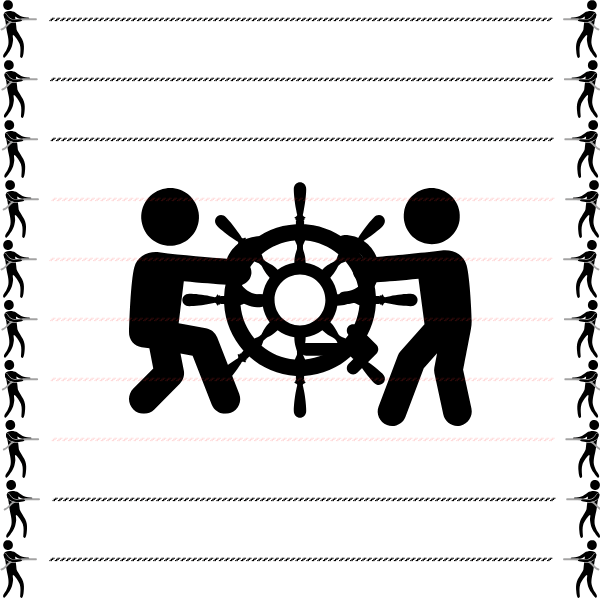
As an Amazon Associate, I earn from qualifying purchases. That means I earn commissions from my sponsored links or I make money when readers (you) purchase items through my links. Your purchase allows me to continue working as a stay-at-home dad who moonlights as a farmer and a musician. Needless to say, this post contains affiliate links.
I didn’t expect this article to get as much mileage as it’s gotten for the past few weeks but hey, I’m not complaining. TO those who’ve sent in their emails, I’m trying to get to you as fast as I can.
I’m taking a bit of time because I’m trying to be careful with what I say and I want to stress this agin that I am not a marriage counselor.
Okay, without further ado, let’s get this started because I’ve got to take the trash out, make some breakfast and then take a short nap because I need my beauty sleep before I start doing more household chores.
Every marriage starts with the same promise — we’ll be partners in everything.
And that’s how it should be.
Two people, sharing decisions, balancing each other’s strengths, filling in the gaps where the other is weak.
That’s the dream.
That’s cooperation.
But somewhere along the way, something changes.
What started as teamwork slowly becomes micromanagement.
The tone shifts from “Let’s figure it out together” to “That’s not how you should do it.”
And before you even realize it, cooperation turns into control.
Cooperation becomes competition.
And that’s not how you do it.
The Subtle Shift No One Notices
Control doesn’t always look like dominance.
It’s often dressed as “helpfulness.”
It sounds like care.
It feels like concern.
She says, “I just want to make sure we’re doing it right.”
Or, “I’m just trying to help you avoid a mistake.”
And maybe she really does mean well.
But the result is the same: her voice slowly replaces yours.
Her opinion becomes the final word.
Her preference becomes the standard.
Your confidence in the role you play falls apart. You start to feel like a subordinate in his own home.
And that’s the quiet tragedy — control often begins with good intentions but ends with emotional suffocation.
When Input Becomes Interference
There’s nothing wrong with giving input.
A healthy wife should speak her mind.
She should challenge her husband when he’s off-track, and she should be heard when something doesn’t feel right.
And oh man have I done some really bad decisions in the past. And although it hurts to swallow your pride, you go on ahead and do it despite its bitter taste.
Andbecause I’ve made a lot of mistakes, small ones, big ones, I’ve kind of accepted that maybe I’m not the best at making decisions. And I ended up just relying on her input on everything.
Everything.
But input and interference are two very different things.
Input says: “Here’s what I think — do what you believe is best.”
Interference says: “You need to do it my way.”
The first builds trust.
The second builds tension.
And when that tension becomes constant — when every discussion feels like a tug-of-war instead of a meeting of minds — cooperation is gone.
You’re no longer working together. You’re competing for control over who gets to steer.
The Man Who Starts to Step Back
Men don’t always fight for control — many just retreat.
When their efforts are constantly questioned or redirected, they start thinking, Why bother?
Why plan anything if it’ll just get rewritten?
Why lead if leadership only leads to argument?
And that’s where quiet resentment grows.
He doesn’t stop loving her — but he starts loving her from a distance.
He starts staying out of things, not because he doesn’t care, but because caring has become too costly.
He stops offering ideas. He stops initiating. He just waits for instructions.
And she, frustrated by his silence, says, “Why don’t you ever take initiative anymore?”
But what she doesn’t see is that she took the space where his initiative used to live.
Control Is Rooted in Fear, Not Strength
Here’s the truth — control doesn’t come from power; it comes from fear.
A woman who tries to control everything in the relationship isn’t trying to dominate — she’s trying to protect.
She’s afraid of things going wrong.
Afraid of being disappointed.
Afraid of trusting and getting hurt.
So she manages, she monitors, she manipulates — not to harm, but to feel safe.
But the problem is, in trying to control the outcome, she loses connection.
How do I know this?
Because for the longest time, I’ve been that kind of person.
A control freak.
How else would I have been able to finish making songs for my band?
How else would I have been able to manage large groups of people?
Yeah, that’s right, by the seat of my pants. Scared as all get out and just trying to act like nothing bothers me.
But everything bothered me.
Maybe that’s also why I stopped trying to be the sole songwriter of my band.
Or why I don’t step up to leadership positions anymore.
I just stopped feeling safe in positions where I was t the forefront of things. Or where everyone depended on my yes or no.
And that’s the same with relationships.
No man can feel safe in a relationship where his every move is managed.
And when a man doesn’t feel safe, he doesn’t open up — he shuts down.
The Partnership Becomes a Courtroom
When control takes over, marriage stops being a home and starts feeling like a courtroom.
Every discussion becomes a debate.
Every mistake becomes evidence.
Every disagreement becomes a trial.
And what gets lost in all that back-and-forth isn’t logic — it’s love.
Because you can’t nurture affection while keeping score.
You can’t build connection when you’re busy proving who’s right.
You can’t feel like a team when both of you are always trying to win.
That’s what control does — it turns intimacy into competition.
And the saddest part?
Most couples who reach this stage don’t even hate each other.
They just don’t feel safe around each other anymore.
How to Tell When It’s Happening
You’ll know cooperation has turned into control when:
- Every plan has to be approved, not discussed.
- Every mistake is magnified instead of forgiven.
- Every disagreement ends with one person’s way “winning.”
- You start feeling nervous before sharing ideas.
- Peace feels rare, and walking on eggshells feels normal.
These are the quiet warning signs that love is being replaced by hierarchy.
That partnership is being replaced by management.
How to Rebuild Partnership
The only way back from control is trust.
Not blind, passive trust — but mutual, deliberate trust.
It starts with humility — from both sides.
The humility to say, “I don’t always have to be right.”
The humility to listen without trying to fix.
And the humility to let the other person lead, even when it’s uncomfortable.
For women, that means giving space — allowing your husband to handle things his way, even if it’s not how you’d do it.
For men, it means consistency — proving through your actions that you’re trustworthy with that space.
Because trust isn’t given once — it’s built daily.
It’s built through follow-through, calm decisions, and respect in small moments.
And as trust grows, control naturally fades.
You don’t have to micromanage what you believe in.
The Power of Letting Go
I needed more thana decade to elarn this lesson. I was so scared of letting go that I didn’t realize how much stress I was taking on because I refused to let go of control.
Control always promises safety but delivers stress.
Cooperation, on the other hand, requires risk — but it produces peace.
When you let go of control, you’re not losing power.
You’re making room for harmony.
You’re saying, “I believe in you enough to stop managing you.”
And that belief changes everything.
Because when a man feels trusted, he doesn’t take advantage — he steps up.
He becomes the man his wife hoped for when she said yes.
And the man should also have enough humility to let go of control when it’s time to let his wife handle the steering wheel. To step back into the support role.
That’s what real partnership looks like — not two people wrestling for control, but two people trusting each other enough to let go.
I don’t know if it’s just me but playing the support role has kind of grown on me. And I realized that it was a great way to alleviate the pressure when it gets too much. To step back from the problems of being a leader so you can deal with important things at home and kinda think things over until you’re called to step up to the plate again.
Cooperation is Always Better Than Competition
Cooperation turns into control when fear replaces faith.
When one person’s need to feel secure overshadows the other’s need to feel respected.
But here’s the truth:
You don’t build strong marriages by controlling outcomes.
You build them by building each other.
So if you find yourself correcting, managing, or “guiding” every move your partner makes, take a step back. Ask yourself — is this love, or is this fear talking?
Because love gives space.
Love trusts.
Love doesn’t keep score or demand compliance.
And when love leads again, peace returns —
not because everything goes your way,
but because both of you finally remember what you were building for in the first place:
Us.



